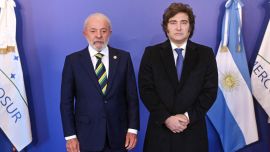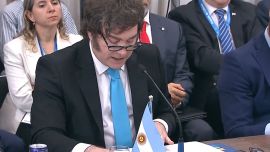Extending its price control scheme to tamp down inflation, the government has reached a major agreement with oil firms to cap price increases at four percent a month until February, with a 3.8 percent hike to come in March.
The agreement is part of a wider government effort to stabilise runaway inflation, which has totalled 76.6 percent since the turn of the year.
President Alberto Fernández’s government recently introduced a new price control scheme with the support of food and drink suppliers and supermarkets which will also limit increases over the summer. Some 2,000 basic necessities will have their prices frozen, with four percent increases approved for another 30,000 items.
This new understanding to tackle petrol prices at the pump will "significantly lower inflation, which is Argentina's main drama," Economy Minister Sergio Massa said Monday in a statement announcing the measure.
The last petrol increase authorised by the government, also four percent, kicked in on October 1. According to the government’s Energy Secretariat, gasoline prices have risen 45 percent over the last 12 months.
Argentina’s consumer price index registered an increase of 6.3 percent in October. Inflation has totalled 88 per cent over the last 12 calendar months, one of the highest rates in the world,
Massa's announcement means that fuel prices have now been incorporated into his brand new ‘Precios Justos’ programme. The signing of this part of the agreement took place on Monday with representatives from state-owned oil firm YPF and private-sector companies Shell, Axion and Puma in attendance.
"The state is also committed to temporarily reducing taxes on fuel imports in order to guarantee supplies for the agricultural sectors," Massa said.
– TIMES/AFP





















Comments